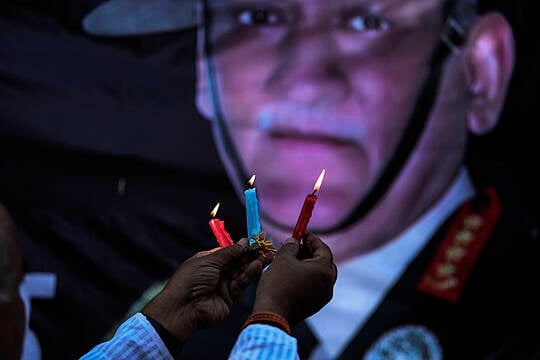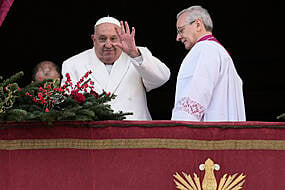An Indian air force helicopter that crashed and killed the military chief, General Bipin Rawat, and 12 others lost contact with air traffic control seven minutes before it was supposed to land and sent no distress call before it was found in flames in a forested area.
In a statement in India’s parliament, defence minister Rajnath Singh did not indicate any SOS by the helicopter crew or bad weather in the region in the southern state of Tamil Nadu.
Rawat, 63, his wife, and 11 army and air force personnel on board were killed in the crash on Wednesday. The lone survivor, air force captain Varun Singh, is being treated in a military hospital, the air force said.
Singh said that a military inquiry committee started work hours after the crash. Media reports said voice and data recorders have been recovered from the site.

The Russian-made Mi-17V5 helicopter was on its way from an air force base to the army defence services college when it crashed near the town of Coonoor, a hill station in Tamil Nadu. The reason for the crash was not immediately known.
Television images showed plumes of smoke billowing from the debris as local residents tried to put out the fire and remove bodies from the wreckage.
Prime Minister Narendra Modi said Rawat had contributed greatly to modernising the country’s armed forces. “His insights and perspectives on strategic matters were exceptional,” Modi said.
Singh said Rawat “served the country with exceptional courage and diligence”.
The US Embassy in New Delhi extended its condolences, calling Rawat “a strong friend and partner of the United States, overseeing a major expansion of India’s defence cooperation with the US military.”
In September, Rawat spent five days traveling in the US as part of a counterpart visit with General Mark Milley to discuss military developments and opportunities to enhance cooperation between the two countries, the embassy said.
Arch rival Pakistan’s army chief, General Qamar Javed Bajwa, expressed his condolences.
Rawat was the most senior official in the Indian military and the first chief of defence staff, a position created by the government in 2019. He was also an adviser to the defence ministry.
His primary task was to overhaul the military, which has struggled to modernise and improve coordination among the army, navy and air force.
He previously served as chief of army staff and also commanded forces in Indian-controlled Kashmir and along the frontier with China. He was a veteran of counterinsurgency operations.







